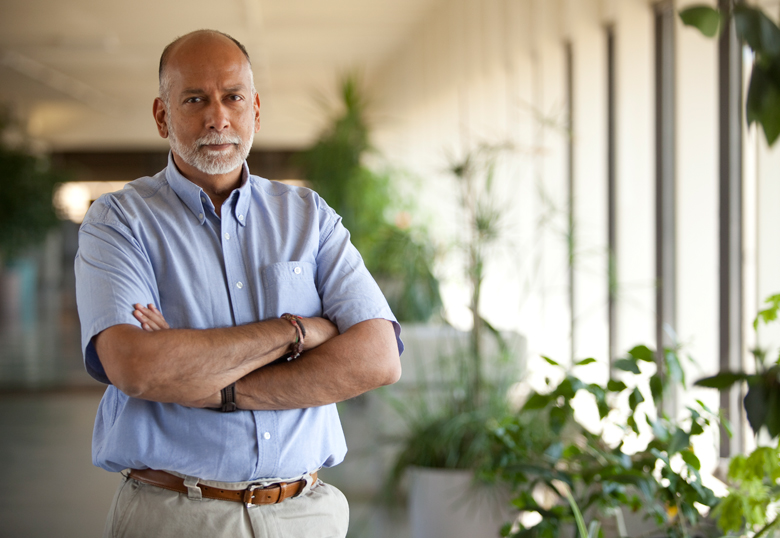Sociological studies show the number of those who call themselves ‘spiritual but not religious’ (SBNR) has been outpacing those who identify with mainstream religious traditions in Canada.
A subset of SBNR groups is the Modern Nondual Spirituality (MNS) movement. Eckhart Tolle, the movement’s high profile teacher, lives in Canada. His books, including The Power of Now and A New Earth, have sold millions of copies. Even so, religious scholars have largely ignored MNS.
“The academic literature is anemic,” says Dr. Hillary Rodrigues, a professor of Religious Studies at the University of Lethbridge. “MNS is often included in New Religious Movements or New Age religions but little effort has been made to distinguish it from other very different movements within those categories.”

Thanks to an Insight Development Grant from the Social Sciences and Humanities Research Council (SSHRC) worth more than $43,000, Rodrigues aims to rectify that situation.
“My goal is to focus on this fast-growing contemporary phenomenon at this crucial emergent stage using religious studies theories and methods,” says Rodrigues. “The MNS movement provides us with a rare opportunity to study what might be a growing and eventually significant religious movement.”
MNS centres on the attainment of a key psychological realization where all conceptual dualities, especially those that distinguish the individual from the rest of reality, collapse. This nondual spiritual liberation is seen as necessary to achieve inner peace, mental health, social tolerance and a host of other personal and communal needs.
Nondual approaches to spirituality aren’t new; they’ve been a part of Hinduism and Buddhism for millennia. However, in the 21st century, adherents of MNS don’t identify as Hindu or Buddhist. Rodrigues’ project will help clarify the characteristics of the MNS movement and perhaps provide clues about why people are increasingly opting for spirituality over religion.
By attending gatherings held by non-duality teachers around the world, Rodrigues plans to conduct free-flowing interviews with seekers in the movement to gain understanding of their motivations and experiences. He hopes to discern shared key characteristics among members. While his hunch is that those in the SBNR movement, estimated to be 30 to 40 per cent of the population in Canada, find the term ‘religion’ too constricting, his research project will verify if that’s correct.
The results of Rodrigues’ study of MNS will also be of interest to other disciplines such as health sciences, psychology, art and education.
